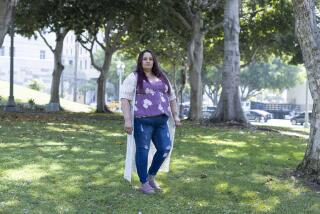22 Groups Get Funding From Tobacco Lawsuit
Ventura County’s Terrorism Working Group is among 22 organizations across the county that will divvy up $1.2 million in public health funding, officials said Monday.
Money will be used for a variety of nonprofit programs, from a public awareness campaign about bioterrorism to expanded cancer screenings for the working poor.
Free dental clinics, more investigation into elder abuse, and school-based public health programs will also receive the grants announced by Public Health Director Paul Lorenz.
Funding comes from $10 million the county receives each year from its participation in a states’ lawsuit against major tobacco manufacturers. The rest was distributed earlier this year.
A citizens advisory group recommended that the $1.2 million be distributed to community groups that can demonstrate emerging needs in certain areas, from communicable diseases to tobacco education.
The Terrorism Working Group, which meets regularly to devise ways to prepare the county for terrorist incidents, had requested $100,000 to buy equipment and run a public awareness campaign, said Sandi Wells, a Ventura County Fire Department spokeswoman.
Although the group, made up of representatives from law enforcement and public health agencies, was awarded just $11,000 for the public information campaign and $25,000 for equipment, it will make do, Wells said. Efforts are underway to produce a short video on symptoms of biological agents, such as anthrax or smallpox, with advice on what to do, Wells said.
The working group will also print fliers and brochures with information on bioterrorism. Those materials will be distributed at fire stations, hospitals and city halls, Wells said.
Ken Maffei, a county Fire Department special operations chief, said officials had hoped to buy several tents to more quickly decontaminate victims of bioterrorist attacks. The department is looking at ways to supplement the $25,000 equipment grant.
The Ventura County Medical Resource Foundation will get nearly $100,000 to expand cervical cancer screenings. The money will help fill a gap in services available to women who have no insurance and cannot afford to pay for Pap smears and other diagnostic tests, said Paul Iannaccone, the foundation’s executive director.
About 2,500 women will qualify for free Pap smears next year, Iannaccone said. Annual exams are important because cervical cancer often has no symptoms until it has progressed to a dangerous stage, he said.
“If it’s caught early, there is a 95% chance of successful treatment,” he said. “This funding will eliminate, almost overnight, a gap in services for a certain group of people.”
More to Read
Sign up for Essential California
The most important California stories and recommendations in your inbox every morning.
You may occasionally receive promotional content from the Los Angeles Times.











